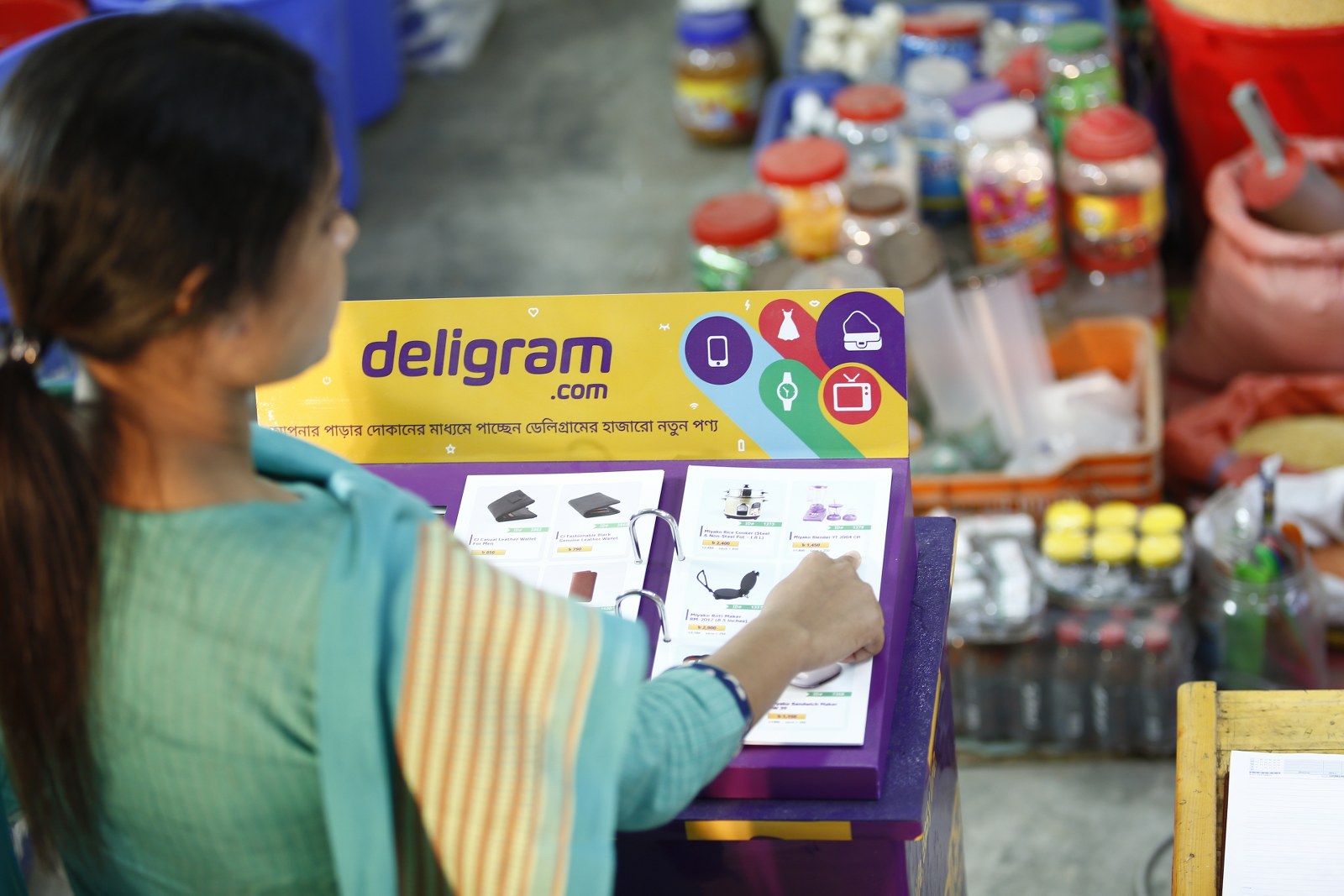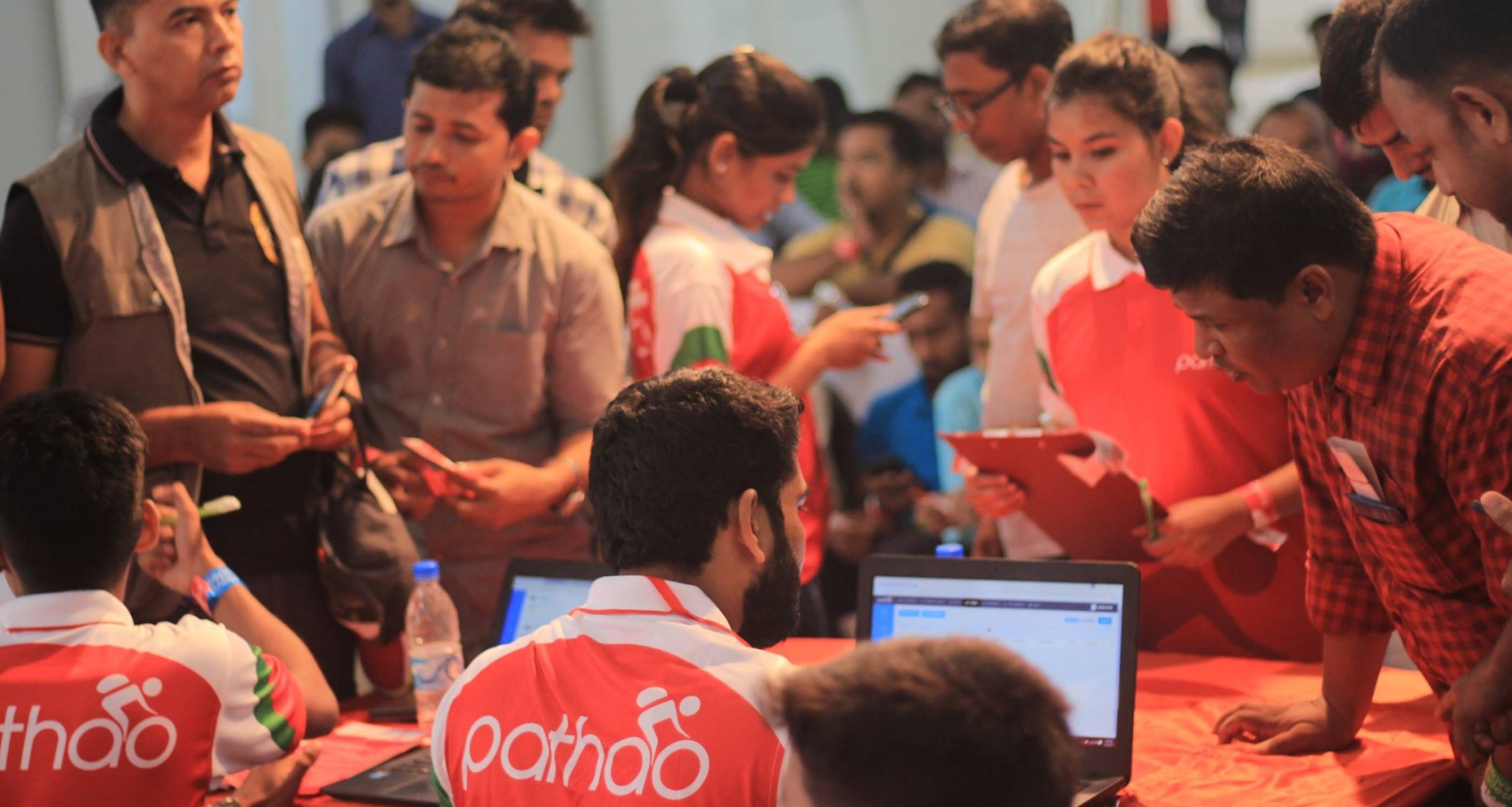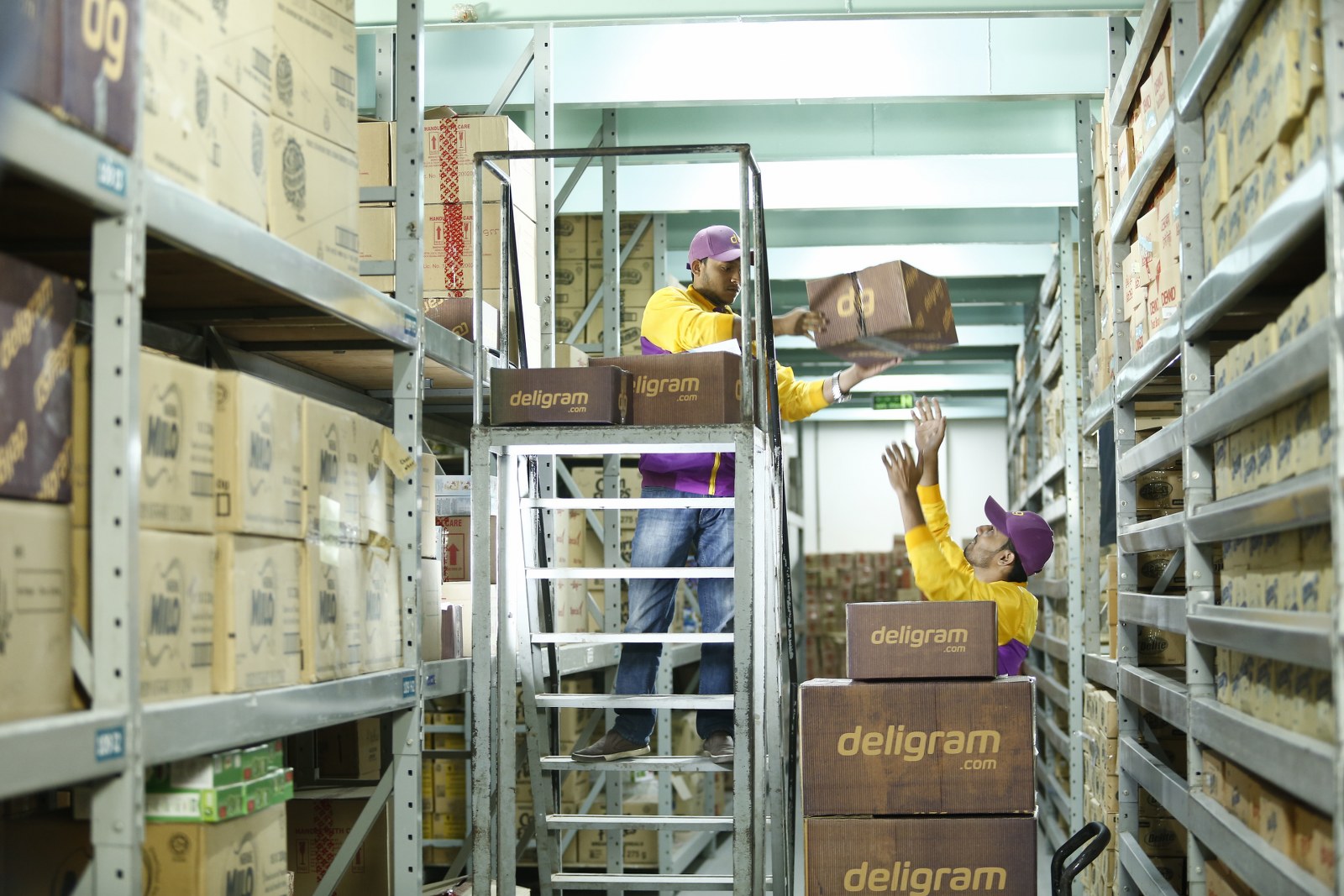At just 26, Waiz Rahim is supposed to be involved in the family business, having returned home in 2016 with an engineering degree from the University of Southern California. Instead, the young entrepreneur is plotting to build the Amazon of Bangladesh.
Deligram, Rahim’s vision of what e-commerce looks like in Bangladesh, a country of nearly 180 million, is making progress, having taken inspiration from a range of established tech giants worldwide, including Amazon, Alibaba and Go-Jek in Indonesia.
It’s a far cry from the family business. That’s Rahimafrooz, a 55-year-old conglomerate that is one of the largest companies in Bangladesh. It started out focused on garment retail, but over the years its businesses have branched out to span power and energy and automotive products while it operates a retail superstore called Agora.
During his time at school in the U.S., Rahim worked for the company as a tech consultant whilst figuring out what he wanted to do after graduation. Little could he have imagined that, fast-forward to 2019, he’d be in charge of his own startup that has scaled to two cities and raised $3 million from investors, one of which is Rahimafrooz.

Deligram CEO Waiz Rahim [Image via Deligram]
So rather than stay in America or go to the family business, Rahim decided to pursue his vision to build “a technology company on the wave of rising economic growth, digitization and a vibrant young population.”
The youngster’s ambition was shaped by a stint working for Amazon at its Carlsbad warehouse in California as part of the final year of his degree. That proved to be eye-opening, but it was actually a Kickstarter project with a friend that truly opened his mind to the potential of building a new venture.
Rahim assisted fellow USC classmate Sam Mazumdar with Y Athletics, which raised more than $600,000 from the crowdsourcing site to develop “odor-resistant” sports attire that used silver within the fabric to repel the smell of sweat. The business has since expanded to cover underwear and socks, and it put Rahim’s mind to work on what he could do by himself.
“It blew my mind that you can build a brand from scratch,” he said. “If you are good at product design and branding, you could connect to a manufacturer, raise money from backers and get it to market.”
On his return to Bangladesh, he got Deligram off the ground in January 2017, although it didn’t open its doors to retailers and consumers until March 2018.
E-commerce through local stores
Deligram is an effort to emulate the achievements of Amazon in the U.S. and Alibaba in China. Both companies pioneered online commerce and turned the internet into a major channel for sales, but the young Bangladeshi startup’s early approach is very different from the way those now hundred-billion-dollar companies got started.
Offline retail is the norm in Bangladesh and, with that, it’s the long chain of mom and pop stores that account for the majority of spending.
That’s particularly true outside of urban areas, where such local stores almost become community gathering points, where neighbors, friends and families run into each other and socialize.
Instead of disruption, working with what is part of the social fabric is more logical. Thus, Deligram has taken a hybrid approach that marries its regular e-commerce website and app with offline retail through mom and pop stores, which are known as “mudir dokan” in Bangladesh’s Bengali language.
A customer can order their product through the Deligram app on their phone and have it delivered to their home or office, but a more popular — and oftentimes logical — option is to have it sent to the local mudir dokan store, where it can be collected at any time. But beyond simply taking deliveries, mudir dokans can also operate as Deligram retailers by selling through an agent model.
That’s to say that they enable their customers to order products through Deligram even if they don’t have the app, or even a smartphone — although the latter is increasingly unlikely with smartphone ownership booming. Deligram is proactively recruiting mudir dokan partners to act as agents. It provides them with a tablet and a physical catalog that their customers can use to order via the e-commerce service. Delivery is then taken at the store, making it easy to pick up, and maintaining the local network.
“We’ll tell them: ‘Right now, you offer a few hundred products, now you have access to 15,000,’ ” the Deligram CEO said.
Indeed, Rahim sees this new digital storefront as a key driver of revenue for mudir dokan owners. For Deligram, it is potentially also a major customer acquisition channel, particularly among those who are new to the internet and the world of smartphone apps.
This offline-online model — known by the often-buzzy industry term “omnichannel” — isn’t new, but in a world where apps and messaging is prevalent, reaching and retaining users is challenging, particularly in emerging markets.
“It’s not easy to direct people to a website today, and the app-first approach has made it hard,” Rahim said. “We looked at how companies in Indonesia and India overcame these challenges.”
In particular, he studied the work of Go-Jek in Indonesia, which uses an agent model to push its services to nascent internet users, and Amazon India, which leans heavily on India’s local “kirana” stores for orders and deliveries.
In Deligram’s case, the mudir dokan picks up sales commission as well as money for every delivery that is sent to their store. Home deliveries are possible, but the lack of local infrastructure — “turn right at the blue house, left at the white one, and my place is third from the left,” is a common type of direction — makes finding exact locations difficult and inefficient, so an additional cost is charged for such requests.
E-commerce startups often struggle with last-mile because they rely on a clutch of logistics companies to fulfill orders. In a rare move for an early-stage company, Deligram has opted to run its entire logistics process in-house. That obviously necessitates cost and likely provides significant growing pains and stress, but, in the long term, Rahim is betting that a focus on quality control will pay out through higher customer service and repeat buyers.

A prospective Deligram customer flips through a hard copy of the company’s product brochure in a local store [Image via Deligram]
Startups on the rise in Bangladesh
Rahim’s timing is impeccable. He returned to Bangladesh just as technology was beginning to show the potential to impact daily life. Bangladesh has posted a 7% rise in GDP annually every year since 2016, and with an estimated 80 million internet users, it has the fifth-largest online population on the planet.
“We are riding on a lot of macro trends; we’re among the top five based on GDP growth and have the world’s eighth-largest population,” Rahim told TechCrunch. “There are 11 million people in middle income — that’s growing — and our country has 90 million people aged under 30.”
“An index to track the growth of young people would be [capital city] Dhaka… you can just see the vibrancy with young people using smartphones,” he added.
That’s an ideal storm for startups, and the country has seen a mix of overseas entrants and local ventures pick up speed. Alibaba last year acquired Daraz, the Rocket Internet-founded e-commerce service that covers Pakistan, Bangladesh, Myanmar, Sri Lanka and Nepal, while the Chinese giant also snapped up 20% of bKash, a fintech venture started from Brac Bank as part of the regional expansion of its Ant Financial affiliate.
Uber, too, is present, but it is up against tough local opposition, as is the norm in Asian markets.
That’s because Bangladesh’s most prominent local startups are in ride-hailing. Pathao raised more than $10 million in a funding round that closed last year and was led by Go-Jek, the Indonesia-based ride-hailing firm valued at more than $9 billion that’s backed by the likes of Tencent and Google. Pathao is reportedly on track to raise a $50 million Series B this year, according to Deal Street Asia.

Pathao is one of two local companies that competes alongside Uber in Bangladesh [Image via Pathao]
Deligram has also pulled in impressive funding numbers, too.
The startup announced a $2.5 million Series A raise at the end of March, which Rahim wrote came from “a network of institutional and angel investors;” such is the challenge of finding a large check for a tech play in Bangladesh. The investors involved included Skycatcher, Everblue Management and Microsoft executive Sonia Bashir Kabir. A delighted Rahim also won a check from Rahimafrooz, the family business.
That’s not a given, he said, admitting that his family did initially want him to go to work with their business rather than pursuing his own startup. In that context, contributing to the round is a major endorsement, he said.
Rahimafrooz could be a crucial ally in future fundraising, too. Despite an improving climate for tech companies, Bangladesh’s top startups are still finding it tough to raise money, especially with overseas investors that can write the larger checks that are required to scale.
“I think the biggest challenge is branding. Every time I speak with new investors, I have to start by explaining where Bangladesh is, or the national metrics, not even our business,” Pathao CEO Hussain Elius told TechCrunch.
“There’s a legacy issue. Bangladesh seems like a country which floods all the time and the garment sector going down — that’s a part of the story but not the full story. It’s also an incredible country that’s growing despite those challenges,” he added.
Pathao is reportedly on track to raise a $50 million Series B this year, according to Deal Street Asia. Elius didn’t address that directly, but he did admit that raising growth funding is a bigger challenge than seed-based financing, where the Bangladesh government helps with its own fund and entrepreneurial programs.
“It’s hard for us as we’re the first ones out there, but it’ll be easier for the ones who’ll follow on,” he explained.
Still, there are some optimistic overseas watchers.
“We remain enthusiastic about the rapidly expanding set of opportunities in Bangladesh,” said Hian Goh, founding partner of Singapore-based VC firm Openspace — which invested in Pathao.
“The country continues to be one of the fastest-growing economies in the world, underpinned by additional growth in its garments manufacturing sector. This has blossomed into an expanding middle class with very active consumption behavior,” Goh added.
Growth plans
With the pain of fundraising put to the side for now, the new money is being put to work growing the Deligram business and its network into more parts of Bangladesh, and the more challenging urban areas.
Geographically, the service is expanding its agent reach into five more cities to give it a total of seven locations nationwide. That necessitates an increase in logistics and operations to keep up with, and prepare for, that new demand.

Deligram workers in one of the company’s warehouses [Image via Deligram]
Interestingly, and perhaps counter to assumptions, Deligram started in rural areas, where Rahim saw there was less competition but also potentially more to learn through a more early-adopter customer base. That’s obviously one major challenge when it comes to growth, and now the company is looking at urban expansion points.
On the product side, Deligram is in the early stages of piloting consumer financing using its local store agents as the interface, while Rahim teased “exciting IOT R&D projects” that he said are in the planning stage.
Ultimately, however, he concedes that the road is likely to be a long one.
“Over the last 18-20 years, modern retail hasn’t made much progress here,” Rahim said. “It accounts for around 2.5% of total retail, e-commerce is below 1% and the long tail local stores are the rest.”
“People will eventually shift, but I think it’ll take five to eight years, which is why we provide the convenience via mom and pop shops,” he added.
0 Comments
Post a Comment